Human Rights Watch says Australia needs to address ‘serious shortcomings’
AUSTRALIA calls itself the “lucky country”, but a new report highlights serious problems with how it’s dealing with some issues.
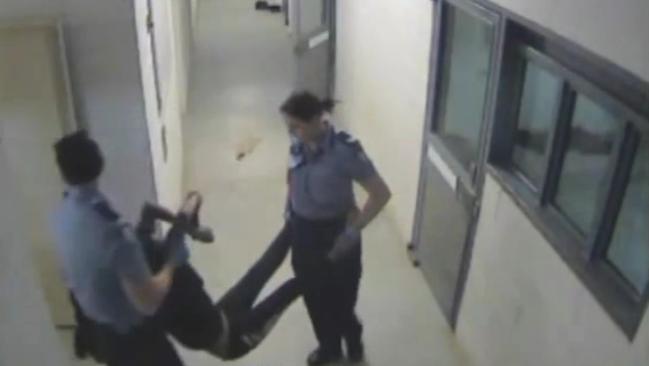
National
Don't miss out on the headlines from National. Followed categories will be added to My News.
AUSTRALIA’S hypocrisy has been laid bare as the latest Human Rights Council warns of “serious shortcomings” in its actions.
The latest Human Rights Watch report released on Thursday night said Australia had “serious unresolved human rights problems”, despite it being elected last year to the UN Human Rights Council for a three-year term.
When it was elected to the council, the Australian Government said it would prioritise gender equality, freedom of expression, indigenous rights, good governance, and national human rights institutions, and that it would advocate for global abolition of the death penalty.
But its actions have fallen short in some areas.
“Australia acted inconsistently and rarely showed leadership at the UN on human rights
issues relating to particular countries,” the World Report 2018 noted.
“During the year Australia rarely raised human rights issues publicly in countries it works closely with on border security or trade, such as China, Cambodia, and Vietnam, preferring to engage in ‘quiet diplomacy’.”
Last year, the UN Special Rapporteur on Racism Mutuma Ruteere raised concerns that “xenophobic hate speech, including by elected politicians” was on the rise in Australia.
The UN Human Rights Committee also expressed strong concern for Australia’s human rights record and condemned the same-sex marriage postal survey as “not an acceptable decision-making method”.
Similarly the report noted issues with how Australia was treating refugees, indigenous people and those with a disability as well as the introduction of “several draconian counterterrorism laws”.
While it acknowledged Australia’s efforts in legalising same-sex marriage and taking steps to end the abuse of children in detention, it said there was still work to be done.
“To be a credible leader on the global stage, Australia needs to address serious shortcomings
in its own human rights record,” Australia director at Human Rights Watch, Elaine Pearson said.
“Sitting on the Human Rights Council will put Australia’s rights record under greater international scrutiny, so the government needs to act now to reverse its human rights failings.”
Here are some of the issues identified:
ASYLUM SEEKERS AND REFUGEES
About 2,000 asylum seekers and refugees remain on Manus Island (about 840) and Nauru (about 1100), sent there by Australia since 2013.
They are from countries including Afghanistan, Myanmar, Iran, Pakistan, Somalia, and Sudan, and most have been there for more than four years.
Many have dire mental health problems and at least nine refugees and asylum seekers have died — three due to suspected suicide.
The refugees and asylum seekers held offshore regularly endure violence, threats, and harassment from area residents, with little protection from local authorities.
Since June, Human Rights Watch has documented attacks by groups of young local men on them, including with sticks, knives, and machetes.
In November, Papua New Guinean authorities forcibly removed asylum seekers and refugees from a centre on Manus to new facilities that placed them at greater risk of attack.
While about 50 refugees have moved to the United States under an Australia-US resettlement deal, Australia rejected offers from the New Zealand government to resettle some of them.
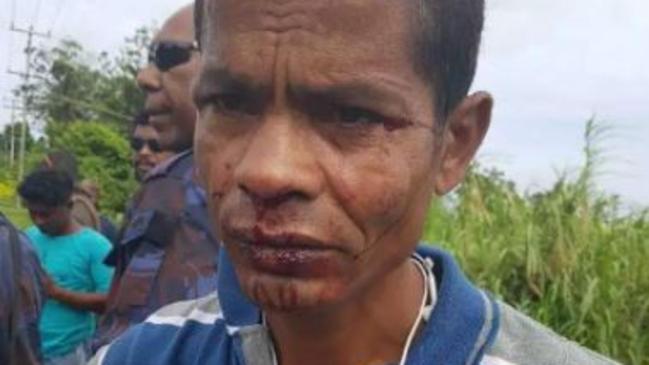
INDIGENOUS RIGHTS
Indigenous Australians are significantly overrepresented in the criminal justice system, often for minor offences like unpaid fines.
Aboriginal and Torres Strait Islanders are 13 times more likely to be imprisoned than the rest of the Australian population. Aboriginal women are the fastest growing prisoner demographic in Australia.
In December 2016, the Western Australian state coroner found that the 2014 death in custody of a 22-year-old Aboriginal woman, Ms Dhu, was preventable, and made a number of recommendations, including that Western Australia end imprisonment for unpaid fines. At time of writing, Western Australia had yet to implement the recommendation.
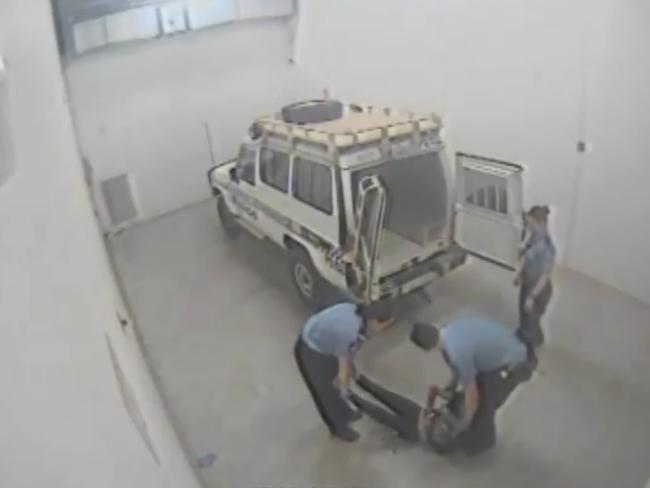
CHILDREN’S RIGHTS
Significant abuses against children in the criminal justice system have been recorded in recent state inquiries. The report also noted that indigenous children are jailed at a rate of about 25 times that of non-indigenous youth.
Young people have previously been detained in adult prisons in Victoria and children as young as 15 have been isolated and handcuffed for long periods.
In July, the Western Australia inspector of custodial services found a substantial increase
in “critical incidents and self-harm” in a juvenile detention centre.
A Royal Commission into the Protection and Detention of Children in the Northern Territory called for the closure of the territory’s youth detention centres, which were “not fit for accommodating, let alone rehabilitating”.
The report recommended the Northern Territory raise the minimum age of criminal responsibility from 10 to 12 years, and that children younger than 14 should only be detained for the most serious offences.
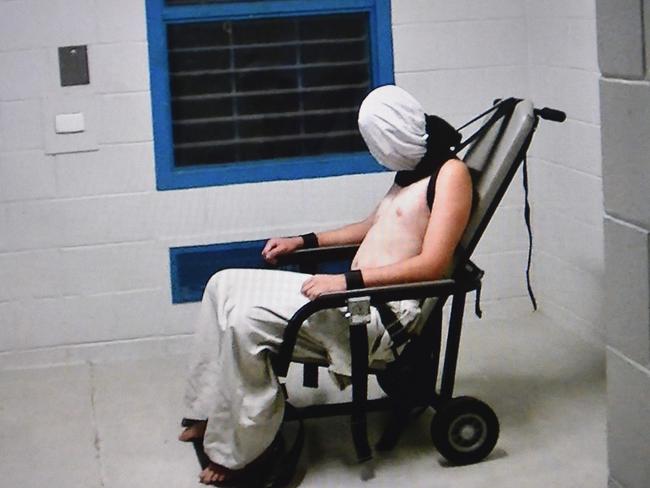
TERRORISM AND COUNTERTERRORISM
The report said the Australian Government had introduced “several draconian counterterrorism laws” in response to the threat of “homegrown terrorism”.
It said new laws to force tech companies to provide “appropriate assistance” to intelligence and law enforcement agencies to access encrypted communications, would risk undermining cybersecurity for all users.
In December 2016, the government also passed legislation allowing judges to keep offenders who have served terrorism-related sentences in jail if they pose an “unacceptable risk” of committing a serious offence if released.
There is also a proposal to allow terrorism suspects as young as 10 to be held for up to two weeks without charge.
DISABILITY RIGHTS
More than half the prison population has a physical, sensory, psychosocial (mental health), or
intellectual disability, and Human Rights Watch research found these prisoners experienced bullying, harassment, physical, and sexual violence from fellow prisoners and staff.
Due to a lack of staff sensitivity and training, prisoners with disabilities were frequently punished for behaviour resulting from their disability and end up disproportionately represented in punishment units.
The report also noted the lack of action following a review by the UN Committee on the Rights of People with Disabilities in the case of Marlon Noble, who was jailed for more than 10 years despite never being convicted and being declared unfit to stand trial.
Despite the Western Australian government acknowledging significant failures in the way the case was handled, no reforms have been introduced.
VIOLENCE AGAINST WOMEN
UN Special Rapporteur on Violence Against Women Dubravka Šimonović visited Australia in February and expressed concern over inadequate policies to protect Aboriginal and Torres Strait Islander women, and the plight of asylum seekers and refugee women transferred from
Nauru to Australia for medical treatment, including women who were raped.
The Australian Human Rights Commission also released a report on sexual assault at Australian universities in August, finding 21 per cent of students were sexually harassed in a university setting in 2016.
FORCED LABOUR
In August, Australia’s justice minister proposed legal reforms to require the biggest
companies in the country to report on practices to prevent slavery in their supply
chains.
The government is consulting stakeholders on the proposal but so far it has lacked meaningful due diligence requirements or penalties for non-compliance.
RELATED: Virtual slave paid 47 cents an hour to work at 7-Eleven store
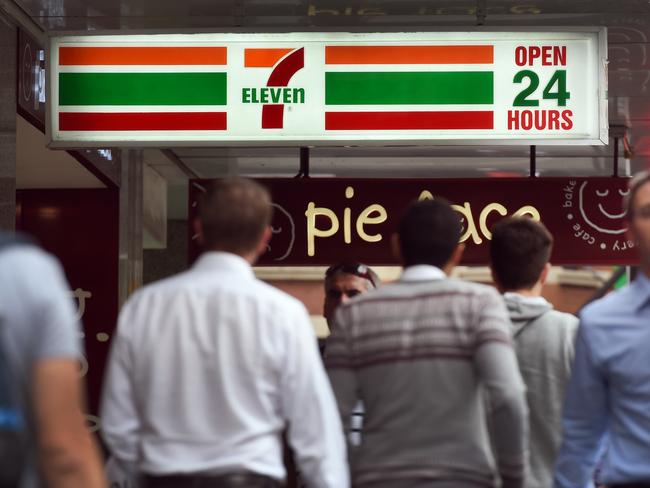
FOREIGN POLICY
The report noted Australia acted inconsistently and rarely showed leadership at the United Nations on human rights issues relating to particular countries.
In October, Australia deepened diplomatic ties with Cambodia while ignoring its sharp crackdown on civil and political rights. In November, it upgraded diplomatic relations with Vietnam despite its escalating crackdown on freedom of expression.
Australia has also shown little transparency as a member of the US-led coalition conducting air strikes against Islamic State.
In May, the Defence Department began releasing reports on strikes by the Australian air force, but more detailed reporting on civilian casualties in Iraq and Syria is needed.
Australia has also approved military exports to Saudi Arabia, despite concerns about alleged war crimes by the Saudi-led coalition in Yemen. Australia has not released information on the types or quantities of equipment sold.
Originally published as Human Rights Watch says Australia needs to address ‘serious shortcomings’


